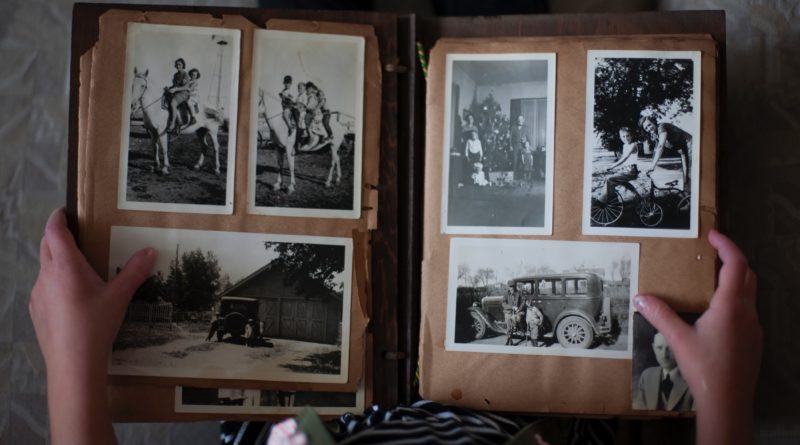House Clearance After Death: A Comprehensive Guide for London
Losing a loved one is an emotionally challenging time, and dealing with their belongings and estate can be overwhelming. House clearance after death is a process that involves sorting, organizing, and disposing of the deceased person’s possessions and properties. In this article, we will guide you through the necessary steps and considerations involved in a house clearance after death in London, providing you with valuable insights and tips to help you navigate this sensitive task.
Understanding the Importance of House Clearance After Death
When a family member passes away, their house often becomes a repository of their life’s possessions. House clearance is essential to prepare the property for future use or sale, settle any outstanding financial matters, and preserve valuable items for family members. It also provides an opportunity to honor the deceased person’s memory by responsibly handling their belongings. In London, where property values are high, this process is especially important to manage promptly and efficiently.
Preparing for House Clearance
Before diving into the house clearance process, it’s crucial to prepare adequately. Start by notifying relevant parties, such as family members, close friends, and the executor of the estate. Assembling a support team can also make the process more manageable and less emotionally draining. This team can provide physical and emotional assistance during the clearance process. In London, several professional organisations can provide practical help and emotional support during this challenging time.
Identifying Valuable Items
During property clearance, it’s essential to identify items of sentimental value and those that hold monetary worth. Sentimental items, such as photographs, letters, and personal mementos, may hold special significance for family members and should be preserved. Valuable items, such as antiques, collectibles, or high-end furniture, can be sold or auctioned to maximize their financial value. Visit your local auction house and antique dealers in London who can provide valuations for these items.
Donating or Disposing of Unwanted Items
Not all items will hold sentimental or monetary value. Consider donating usable items to charitable organizations, allowing them to benefit those in need. Additionally, recycling and responsible waste disposal should be considered for items that are no longer usable or in poor condition. In London, various local recycling centres, charity shops, and council-supported disposal services can help with this process, ensuring minimal environmental impact.
Legal and Financial Considerations
House clearance after death often involves legal and financial considerations. If the deceased person left a will, the process of probate and executor appointment may need to be initiated. It’s crucial to consult legal professionals to ensure compliance with local laws and regulations. In London, the Probate Service can offer advice and guidance on how to administer the deceased’s assets correctly. Managing debts, taxes, and any outstanding financial matters is also essential during this phase.
Hiring Professional House Clearance Company
While some people prefer to handle house clearance independently, others may choose to hire professional services. Research reputable house clearance providers in London, read customer reviews, and obtain quotes to ensure you choose a reliable and trustworthy service. Professional house clearance services, such as We Clear Everything, can alleviate the burden and ensure the process is conducted efficiently and sensitively. Book your house clearances with us and clear everything now!
Emotional Support during House Clearance
House clearance after death can evoke strong emotions and memories. It’s essential to acknowledge and address the emotional aspects of this process. Allow yourself time to grieve and seek emotional support from friends, family, or professional counselors who can provide guidance and solace during this difficult time. London offers various resources, including grief counselling services and support groups, to help navigate the emotional challenges of this process.
House Clearance Costs
House clearance after a death can be a daunting task, especially when considering the costs involved. Here are some key points to consider:
- Average House Clearance Cost: The average cost of house clearance in London can start from £200 and can go up to £750+ VAT for a typical three-bedroom house. The cost is determined by the complexity of the job and the number of items to be cleared.
- Cost by Quantity: Some companies charge based on the quantity of items. For instance, a small clearance equivalent to up to 250kg or one-fourth of a large van starts at £80. A standard size clearance of up to 750kg may cost between £250 and £300.
- Additional Fees: If the items are no longer useful, additional fees may apply to dispose of them in accordance with waste disposal regulations. This is particularly true for white goods like refrigerators, which must be disposed of properly to avoid releasing harmful materials.
- Cost of Specific Items: The cost can also vary based on the type of items. For example, clearing an oven may cost around £25, whereas clearing a piano could cost £100.
- Location Factor: The location of the house can also affect the cost. For instance, house clearance service costs in London are typically higher than other parts of the UK.
- Labour Costs: The labour costs can range from £15 to £20 per hour for a tradesperson. The total time taken can vary based on the size of the house and the number of items to be removed.
Remember, these are average costs and the actual cost can vary based on various factors. It’s always a good idea to get quotes from multiple house clearance companies to ensure you’re getting a fair price. Contact us to get a quote!
Conclusion
House clearance after death is a complex and emotional process that requires careful planning and consideration. By following the steps outlined in this guide, you can navigate the house clearance process with compassion, efficiency, and respect for the deceased person’s belongings. Remember to take care of your emotional well-being throughout the process and seek support when needed.
Frequently Asked Questions
Who is responsible for house clearance after death?
The person named as the executor in the deceased person’s will is typically responsible for clearing their house after their death. If no will exists, the responsibility usually falls on the closest relative.
Can you clear a house before probate?
It’s generally acceptable to clear a house before probate if the items removed are not of significant value. For valuable possessions, it’s advisable to wait until probate is granted to avoid any potential legal complications.
Who owns the contents of a house when someone dies?
The contents of a house are typically considered part of the deceased’s estate and are included in the probate process. Once probate is granted, the executor or administrator has the legal right to distribute the contents according to the deceased’s will.
How long does the council give you to clear a house after a death?
The time frame for clearing a house after a death can vary depending on individual circumstances and the local council’s regulations. In London, most local councils allow a reasonable period for the clearance process. It’s advisable to check with your local council to get accurate information.


